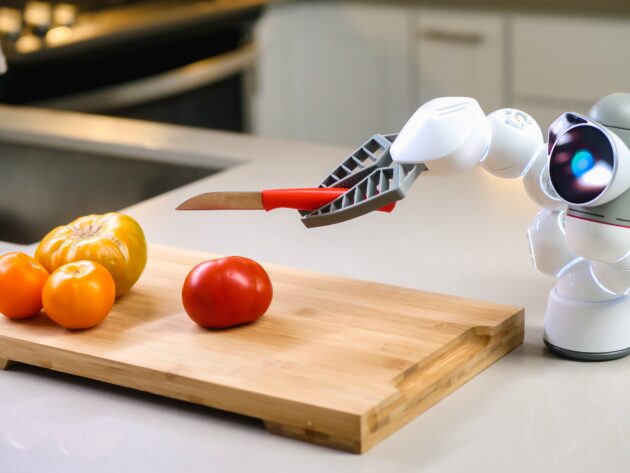
In the competitive hospitality industry, providing an exceptional guest experience is paramount to a hotel’s success. From the moment a guest makes a reservation to the final check-out, every step in their journey is an opportunity to leave a lasting impression. With the advent of Artificial Intelligence (AI), hotels can now leverage advanced technology to enhance and personalize each guest’s stay. Let’s explore how AI can be integrated into every stage of a hotel stay, starting from the reservation process and concluding with the check-out.
Step 1: Reservation Process
The journey begins with the reservation process, a critical touchpoint that sets the tone for the entire stay. AI can play a pivotal role in streamlining and personalizing this experience. Implementing a chatbot on the hotel’s website or mobile app powered by AI allows guests to make reservations seamlessly. These bots can answer queries, provide information about room availability, and even suggest personalized recommendations based on the guest’s preferences.
AI-driven recommendation engines can analyze a guest’s past preferences and behavior to propose room upgrades, dining options, or additional services that align with their preferences. By understanding the individual needs of each guest, hotels can tailor their offerings and create a sense of anticipation before the guest even arrives.
Step 2: Pre-arrival Communication:
Once a reservation is confirmed, AI can assist in maintaining communication with the guest leading up to their arrival. Automated personalized emails or messages can provide information about the hotel amenities, local attractions, and even weather forecasts. This proactive communication not only adds a personal touch but also ensures that guests feel well-informed and valued.
Step 3: Check-In Process
Traditionally, the check-in process has been a potential source of frustration for guests. AI can revolutionize this experience by enabling contactless check-in through mobile apps. Facial recognition technology can be employed for a seamless and secure check-in process, allowing guests to bypass the front desk altogether. This not only enhances efficiency but also aligns with the growing demand for minimal contact in the post-pandemic era.
Step 4: Personalized In-Room Experience
AI-powered smart rooms can elevate the in-room experience by anticipating and fulfilling guest preferences. Smart assistants like virtual concierges can provide information about hotel services, local attractions, and even control room settings based on voice commands. By learning from guest behavior, these systems can automatically adjust lighting, temperature, and entertainment options to create a personalized and comfortable atmosphere.
Step 5: Dining and Service Recommendations
AI algorithms can analyze guest data to recommend personalized dining options and suggest additional services during the stay. Whether it’s dietary preferences, past dining history, or special occasions, AI can tailor recommendations to enhance the overall guest experience.
Step 6: Real-time Assistance
Throughout the stay, AI-powered chatbots or virtual concierges can be available 24/7 to address guest queries, provide recommendations, and assist with requests. This real-time assistance ensures that guests feel attended to and valued, contributing to an overall positive impression.
Step 7: Check-Out Process
Streamlining the check-out process is another opportunity to utilize AI. Automated check-out options through mobile apps can enhance efficiency, allowing guests to settle their bills and provide feedback seamlessly. AI can also analyze guest feedback to identify areas for improvement, ensuring continuous enhancement of services.:
Incorporating AI into every aspect of a guest’s journey, from reservation to check out, can significantly elevate a hotel’s service standards. By harnessing the power of AI to understand and anticipate guest needs, hotels can create a more personalized and seamless experience. As technology continues to evolve, embracing AI is not just a trend, but a strategic move to stay ahead in the competitive hospitality landscape. Ultimately, the successful integration of AI translates into happier guests, positive reviews, and increased loyalty—a winning formula for any hotel seeking to excel in the modern hospitality industry.








